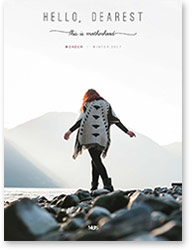Contact Us
Awe research. It’s a real thing and it’s happening at the University of California, Berkeley. A team of psychologists have found that people who experience awe manifest some very interesting behaviors. I would have guessed that awe boosted mood temporarily and that would be benefit enough, right? Instead, they discovered that people who experience awe not only feel more personal well-being, but they also show greater curiosity and altruism – the unselfish regard for or devotion to the welfare of others.
Awe is unique. It mysteriously compels us to share, cooperate with and sacrifice for other human beings. Other positive emotions like pride or amusement do not produce this outcome. As a psychotherapist, I see that compulsion comes easy – it viscerally demands something to be done and is difficult to resist. This research excites me because we usually associate good deeds with self-discipline, a difficult exercise of the will, and often contrary to what we would rather be doing. However, awe literally compels us toward altruistic behaviors, a delicious freebie – a freebie we can apply to our marriages.
What if our marriages had more mutual curiosity, regard, cooperation, sharing, devotion to the welfare of the other and self-sacrifice? What if we felt compelled, and not obligated, to do these things for our husbands?
Breathtaking, monumental beauty like camping in the shadow of Mount Princeton, visiting the Grand Canyon or viewing a Rembrandt are irrefutably awe-inspiring. However, opportunities for awe are all around us in our “mundane” daily lives. The key to recognizing it is intentional awareness. Taking a moment to intentionally focus on a tiny, beautiful or intriguing element in nature has the ability to fill my eyes with wonder: my toddler’s blonde ringlets, the Autumn Blaze Maple, the sky, or even the water flowing from my kitchen faucet.
Contemplate the story of your marriage. Not everyone has a fairytale, but the majority of women reading this have experienced falling in love with a man, a proposal and a wedding day. Reflect on who your husband is. The intimate details you know about him, his childhood and adolescence. His pains, his longings and what gives him childlike excitement. Study his hands and eyes. He is God’s creation; you see better than anyone else the gifted true self that emanates from deep within him. Though he also has a false self, which can certainly cause pain, you know his true potential, worth and dignity. Ravi Zacharias said, “Part of wonder is to recognize that heaven has been crammed into every life by the marvelous hand of the Creator.” Hold the wonder and mystery of your spouse in your mind and the experience will nourish your relationship with him.
When I view my struggles with my husband in the sacred light of awe and appreciation for the complex creature he is and the only life partner I have, I experience a shift of perspective. When I spend time being with him – quiet, unhurried time looking at his face, whiskers, tired lines around his eyes, the thrift store shirt he chose that day. In these brief and too rare moments, after the kids are asleep, I can experience the wonder of the link between us, years of experiences, fights, birthdays, funerals, job changes, financial decisions and parenting struggles. I see our relationship as a much larger whole and am able to look past the daily struggles and past wounds to see our intertwined existences.
I’m not saying that wonder makes you forget all about an affair or workaholism, but I am saying that wonder and awe draw our perspective and emotions to a higher plane of understanding. I call this seeking God’s view of our situation. Appreciating the larger context of the events in our lives brings humility, inspires forgiveness and nurtures trust from a deep place of knowing and wisdom. When we focus our minds and engage our hearts in the task of seeking awe, we get to enjoy the inspired compulsion of doing great good in our marriages.
Kelley Gray has been a private practice psychotherapist in the Denver area for 14 years. She is passionate about promoting growth, healing and making messes with her daughters.

This article originally appeared in the Winter 2017 issue of Hello, Dearest. If you didn’t get a copy and would like your own, you can subscribe to get Hello, Dearest in your mailbox every season. If you subscribe, forward your receipt to magazines@mops.org and we’ll shoot a copy of the current issue in the mail to you for free … just because we like you.
